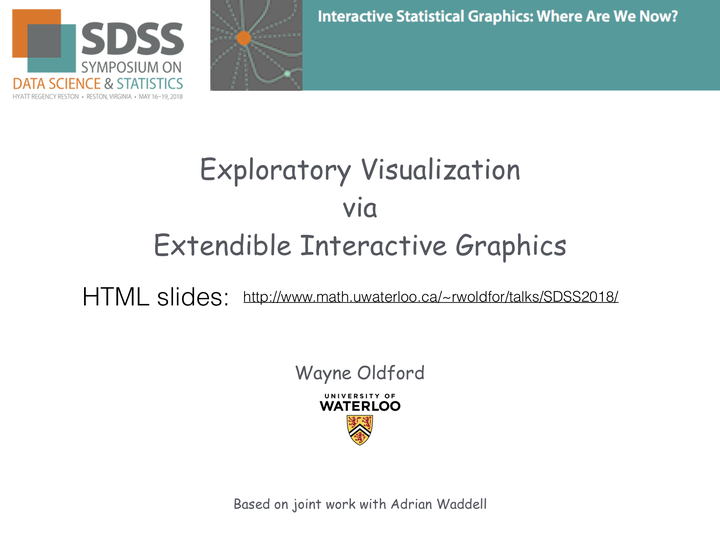Exploratory Visualization via Extendible Interactive Graphics

Abstract
Exploratory visualization means being without a narrative inasmuch as the user/analyst/developer can engage in an open-ended, creative, and (as much as possible) unconstrained exploration of some subject through visualization. To enable exploratory visualization, the visual tools need to be simply designed, easy to combine in new ways, responsive both programmatically and to a variety of keyboard, mouse, and screen events, as well as user extendible to novel displays and interactions. Loon is a recently designed interactive and extendible toolkit written in Tk/TCL and hence accessible from many programming languages including R and Python. This is especially important since both languages have rich libraries of methods that are used in data analysis, statistical and mathematical modelling. The R interface to Loon is the most developed at this time and is available as the “loon” R package (downloadable from CRAN). In this talk, the R loon visualization toolkit will be described and illustrated on a variety of exploratory visualization examples including high-dimensional exploratory data analysis, methodological exploration for the classroom or research, as well as exploratory prototyping of new interactive visualizations. Through these examples the overall design of loon, its interactivity, and its extendibility will be presented. Some new interactive tools for high-dimensional data analysis will be shown. This is based on joint work with Adrian Waddell.